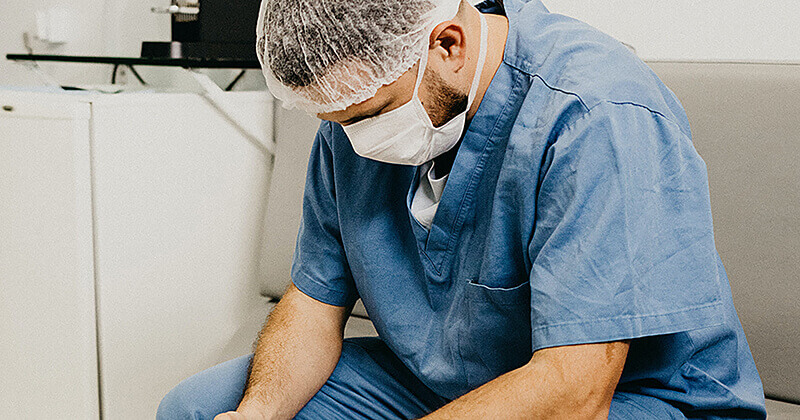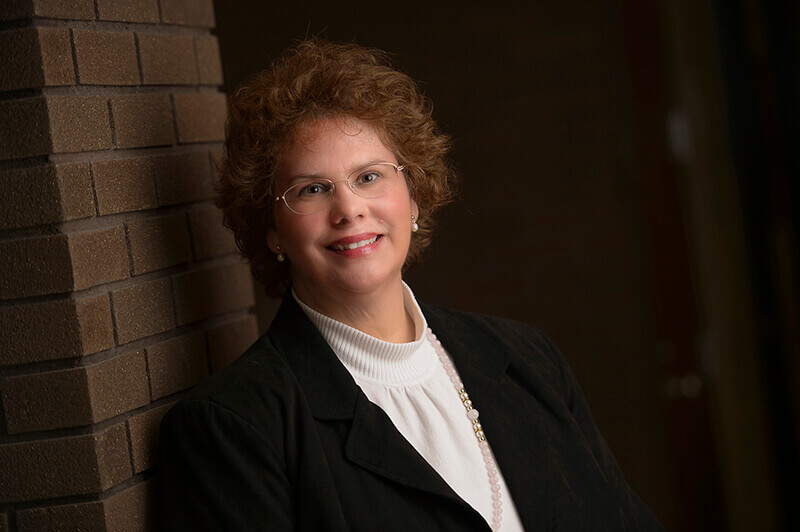May 4, 2020
Gloves and masks prevent infection, but how do we protect nurses’ mental health?

Purdue researchers are exploring ways of determining the extent of psychological trauma induced by the COVID-19 pandemic and identifying factors that influence depression, anxiety, substance use and self-harm. The team will focus on critical care registered nurses in hospital settings. (Photo Jonathon Borba/Unsplash)
An expert on trauma in nursing leads a team of Purdue University researchers pursuing the answer
WEST LAFAYETTE, Ind. — Accounts of the mental toll of the COVID-19 pandemic on nurses and other health care workers are highlighted in news and social media, but how to protect their well-being is largely unknown.
An expert on trauma in nursing leads a team of Purdue University researchers pursuing ways to identify at-risk nurses and design means for healing and recovery.
Karen Foli, co-author of “The Influence of Psychological Trauma in Nursing” and an associate professor of nursing in the College of Health and Human Sciences who leads the team, plans to determine the extent of psychological trauma induced by the COVID-19 pandemic and identify factors that influence depression, anxiety, substance use and self-harm. The team will focus on critical care registered nurses in hospital settings.
“The psychological and behavioral responses of frontline nurses to the COVID-19 pandemic is largely unknown, and the lack of this knowledge is a roadblock to interventions that will improve nurses’ well-being,” Foli says. “We must care about and care for our nurses, not only as fellow human beings, but as the largest portion of the health care workforce. A healthy nurse workforce means fewer medical errors, better overall treatment and more lives saved.”
 Karen Foli, an associate professor of nursing in Purdue University’s School of Nursing. (Purdue University photo)
Download image
Karen Foli, an associate professor of nursing in Purdue University’s School of Nursing. (Purdue University photo)
Download image
Foli is collaborating with Yu-Chin Chiu, assistant professor of psychological sciences, and Lingsong Zhang, associate professor of statistics and member of the leadership team of the Regenstrief Center for Healthcare Engineering at Purdue. The College of Health and Human Sciences funded the research through its rapid response grant program.
Chiu’s research focuses on mechanisms of cognitive control, which is the ability to coordinate thoughts and actions according to internal goals. Failure of cognitive control has been shown to contribute to behaviors associated with mental illness and addiction, Chiu said.
Determining whether cognitive control plays a role in how nurses respond to psychological traumas induced by the COVID-19 pandemic is a part of the research project.
The work builds on Foli’s model called the middle range theory of nurses’ psychological trauma. A data-driven manuscript that expands on the model was fast-tracked for publication this June in the Archives of Psychiatric Nursing because of its relevance amid the COVID-19 pandemic. The theoretical model positions the nurse as the focus of trauma-informed care and examines what can be done at both the individual and organizational level to mitigate traumas that impact nurses.
Foli’s previous research applied a trauma-informed approach to substance use in registered nurses, and nursing care and support of nontraditional families during transitions and challenges faced in community settings.
About Purdue University
Purdue University is a top public research institution developing practical solutions to today’s toughest challenges. Ranked the No. 6 Most Innovative University in the United States by U.S. News & World Report, Purdue delivers world-changing research and out-of-this-world discovery. Committed to hands-on and online, real-world learning, Purdue offers a transformative education to all. Committed to affordability and accessibility, Purdue has frozen tuition and most fees at 2012-13 levels, enabling more students than ever to graduate debt-free. See how Purdue never stops in the persistent pursuit of the next giant leap at purdue.edu.
Writer: Elizabeth K. Gardner
Media Contact: Matthew Oates, 765-586-7496 (cell), oatesw@purdue.edu, @mo_oates
Sources: Karen Foli, kfoli@purdue.edu
Yu-Chin Chiu, yuchinchiu@purdue.edu
Lingsong Zhang, lingson@purdue.edu
Note to Journalists: A photo of Karen Foli and a stock image are available in a Google Drive. Foli is available for phone or web-based video interviews. Please contact Matthew Oates at oatesw@purdue.edu for information.

